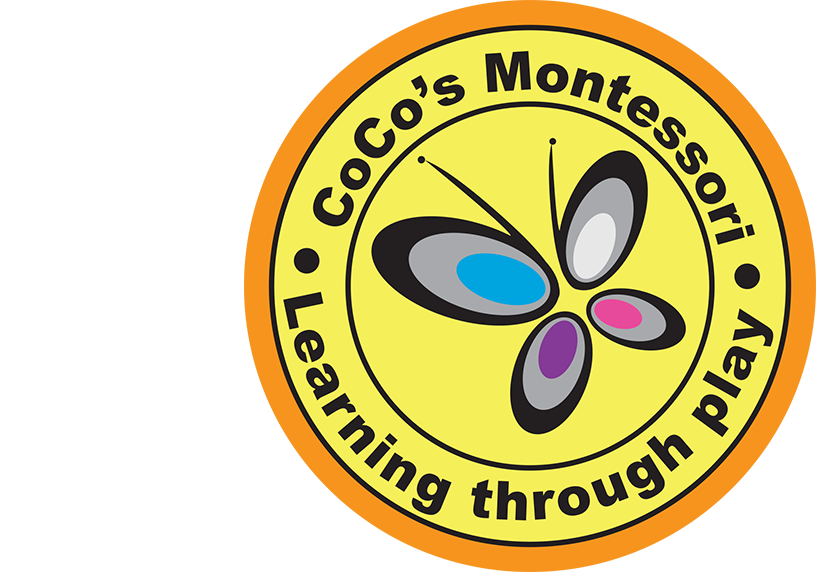-
Curriculum Areas
-
A Montessori classroom is divided by low, open shelves into several curriculum areas:
Practical Life
Sensorial
Language
Math
Cultural (Science, Geography, Botany, Zoology and Cultural Studies)
Curriculum EnhancementThe curriculum is an integrated, thematic approach that ties individual disciplines together into the study of the physical universe, the world of nature, and the human experience – one lesson leading to many others.
Each classroom material isolates a specific concept or skill and has been designed to naturally draw children to work with it with little or no nudging from adults. The materials are used as tools to help children work and learn at their own pace, to see abstract ideas presented in a very concrete, three-dimensional way, and to help them grasp and understand the concepts they are working to master. Because the materials have been created, in many cases, to allow children to check their own work, Montessori students learn not to be afraid of making mistakes. We refer to this as a built-in “control of error.” Children learn that they can try again without fear of embarrassment.
Our curriculum is devised to preserve a lifelong love of learning, while building skills, self-esteem, competence, independence, and responsibility.
-
Adults work to finish a task, but the child works in order to grow, and is working to create the adult, the person that is to be
-
Practical Life
Students participate in exercises that instill skills in caring for oneself, for others, and for their environment. Activities include tasks that children see as daily routine in their home, along with the exercises that develop character, socialization and introduce purposeful work.
-
Sensorial
Young children explore and take in information through all their senses. Sensorial exercises are hands-on materials that enhance the senses to prepare students for future academic work, as well as to provide concrete exploratory experiences. These experiences allow for students to develop logic and concentration as well as continued independence
-
Language
Student lessons increase students’ ability to communicate through reading and writing. Using the 3 modalities of visual, experimental and auditory, Montessori utilizes the curriculum to increase skills and student ability.
-
Math
Students are introduced to math concepts with hands-on, manipulative materials. Counting, operations, and memorization are developed through exposure and repetition to help develop the Mathematical Mind. Students participate in one-on-one, small group, and large group activities.
-
Cultural
The Cultural area of the Montessori classroom covers a variety of subjects. Geography, Science, Botany, Zoology, and History are included. Art and Music are also considered a part of the Cultural Area of the classroom. The Montessori cultural studies are another thing that makes the Montessori classroom different from other ones. Dr. Maria Montessori felt that having knowledge and understanding of such subjects is what makes one a “cultured” person.
We include Geography, Science, Botany, and Zoology as the focus of the Cultural Area. Art and Music are in their own category, although they tie in with our monthly program. History is covered in greater detail as the children progress through the elementary part of a Montessori school. Studies that are found in the curriculum pages, is where the Cultural breakdown for the classroom is found. Daily group lessons are based on these four main areas of the Cultural part of the classroom.
-
Curriculum Enhancement
In addition to teaching the core subjects, Coco’s Montessori School offers several speciality classes to provide broad education to benefit the “whole child,”
Arts/Crafts: Students explore various mediums from painting, drawing, and innovative materials to learn concepts such as color theory, shading techniques, and drawing perspective.
Cooking: Children are introduced to food preparation in practical life and through special cooking classes randomly organised at school with professionals.
Music: Students have weekly piano music classes. They learn to read sheet music and play. Songs are performed as recitals.
French: lessons are presented weekly. As students move their way through the program, their knowledge of vocabulary, grammar, speaking and writing are enhanced.
Computers: Students in the upper Casa are taught once a week. The focus is on Microsoft Office programs and navigating research engines.
Coding/Robotics: we’re one of the first schools in Ghana to introduce the Montessori prescribed “cubetto” robot for our STEM initiatives in our preschool. This is to bring innovation, collaboration, hands-on learning and problem solving skills to our students.

